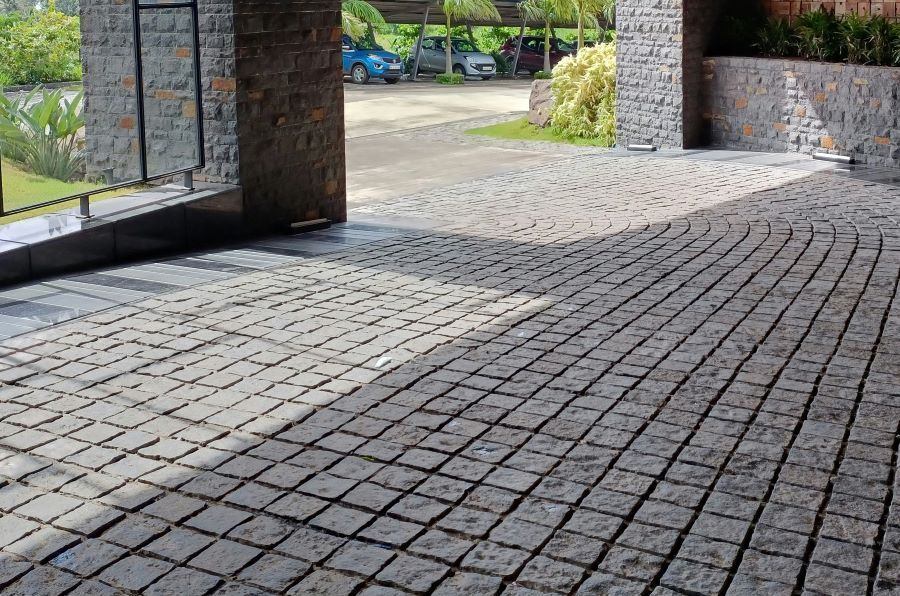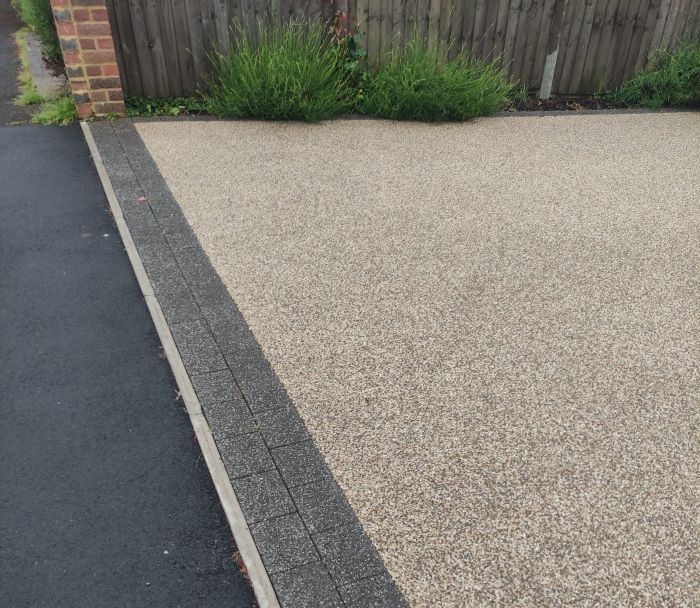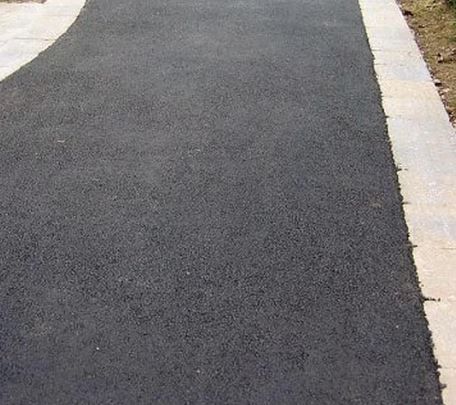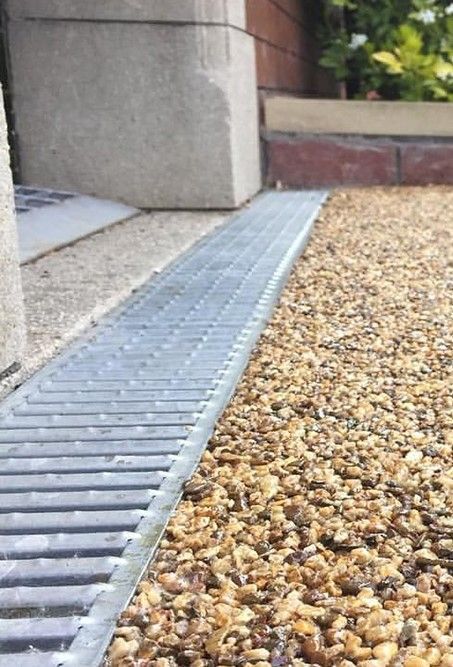Driveway Drainage Regulations in the UK
In the UK, ensuring proper drainage for your driveway is now a legal requirement and isn't simply about keeping your property dry and preventing puddles.
This became a requirement in 2008, when specific regulations were put in place to manage surface water runoff and prevent flooding.
This blog post will serve as your one-stop guide to understanding driveway drainage regulations in the UK, their importance, and the different solutions that comply with these regulations.

Why Are Driveway Drainage Regulations Important?
The obvious question to start with is why was driveway drainage regulation introduced? And the simple answer is to alleviate flooding.
Across the UK, there is driveway after driveway preventing rainwater from soaking into the ground. All of these driveways channel surface water into council owned drains. With more unpredictable weather becoming the norm, these increases in drainage use is causing nationwide problems.
So since 2008, driveway regulation was introduced to ensure every new driveway was built to more sustainably distribute surface water on the property. This would be done by using drainage system to direct rainwater towards borders or lawns.
To summarise, driveway drainage regulations are crucial for several reasons:
- Flood Prevention: Poor drainage can lead to excess surface water runoff, overwhelming drainage systems and contributing to localised flooding. This can damage property and infrastructure, causing significant inconvenience and financial loss.
- Environmental Protection: Excessive runoff can pollute waterways with pollutants like oil and debris from vehicles. Proper drainage allows water to soak into the ground naturally, filtering out contaminants.
- Property Protection: Standing water on your driveway can damage the surface over time, leading to cracks, erosion, and potential foundation issues.
Understanding the Regulations
The regulations regarding driveway drainage are outlined by the Building Regulations (England and Wales) 2010, Part H – Drainage and Wastewater Disposal. These regulations apply to any new or replacement driveway exceeding 5 square metres in area.
Here's a breakdown of the key points:
- Sustainable Drainage Systems (SuDS): The regulations encourage the use of SuDS, which are drainage systems designed to mimic natural drainage processes. Examples include soakaways, permeable paving, and rainwater harvesting systems.
- Drainage Permission: For driveways exceeding a certain size or complexity, planning permission from your local authority may be required. This ensures your chosen drainage solution complies with regulations and integrates effectively with the existing drainage network.
- Professional Advice: Consulting a specialist like ourselves can of course be beneficial. We can assess your specific situation, advise on the most suitable drainage solution that adheres to regulations, and ensure proper installation.
"SuDS (Sustainable Driveway Systems) are natural drainage methods built to direct water away from council owned pipes and sewers, encouraging instead, natural ground drainage."
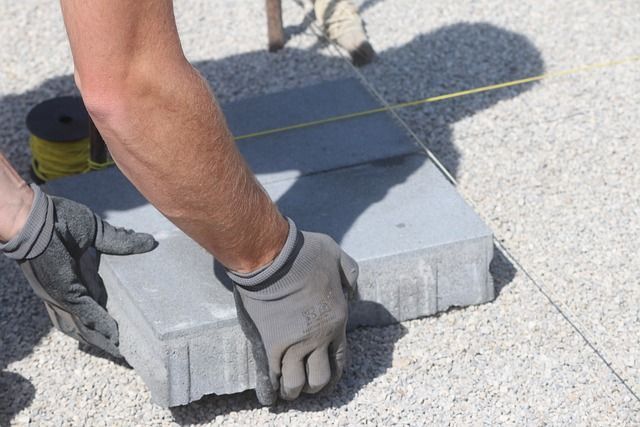
Complying with Drainage Regulations: Available Solutions
Here are some popular driveway drainage solutions that comply with UK regulations:
- Channel Drains: Linear drains collect and divert surface water away from your property. They are ideal for driveways with a significant slope.
- Soakaways: Underground pits filled with gravel allow water to drain and percolate into the ground. They are suitable for areas with permeable soil.
- French Drains: Trenches filled with gravel collect and redirect water away from your property. They are effective for areas with poor drainage.
- Permeable Paving: Materials like gravel or specially designed concrete paving allow rainwater to soak through the surface, reducing runoff.
Are Resin-bound driveways compliant?
The short answer is yes! Resin bound driveways are one of our most popular driveway options and for good reason!
Over recent years, resin driveways have gained significant popularity, offering a modern and environmentally friendly alternative to your traditional paving materials like asphalt, tarmac, concrete etc.
One of the key reasons for the increasing popularity of resin driveways is their compliance with UK Sustainable Drainage Systems (SuDS) regulations. These regulations aim to manage rainwater more sustainably by encouraging infiltration and reducing surface runoff.
- Permeability: Resin driveways are designed to be permeable, allowing rainwater to drain through the surface and into the ground below. This helps to reduce the volume of surface water runoff, minimizing the risk of flooding and protecting local watercourses.
- Reduced Runoff: By minimizing surface water runoff, resin driveways contribute to a more sustainable drainage system, reducing the strain on local drainage infrastructure and helping to prevent pollution.
- Compliance with Planning Permission: Due to their permeable nature and compliance with SuDS regulations, resin driveways often require less stringent planning permission compared to impermeable surfaces like concrete or tarmac.
Conclusion
Understanding and complying with driveway drainage regulations is essential for responsible homeowners in the UK. By implementing a proper drainage solution, you can protect your property from water damage, contribute to flood prevention, and ensure a more sustainable environment.
Remember, if you're unsure about the regulations or the best solution for your driveway, here at Driveways Maidenhead we would be more than happy to come and advise. We've been building driveways for soem time now, so rest assured you're in good hands.


